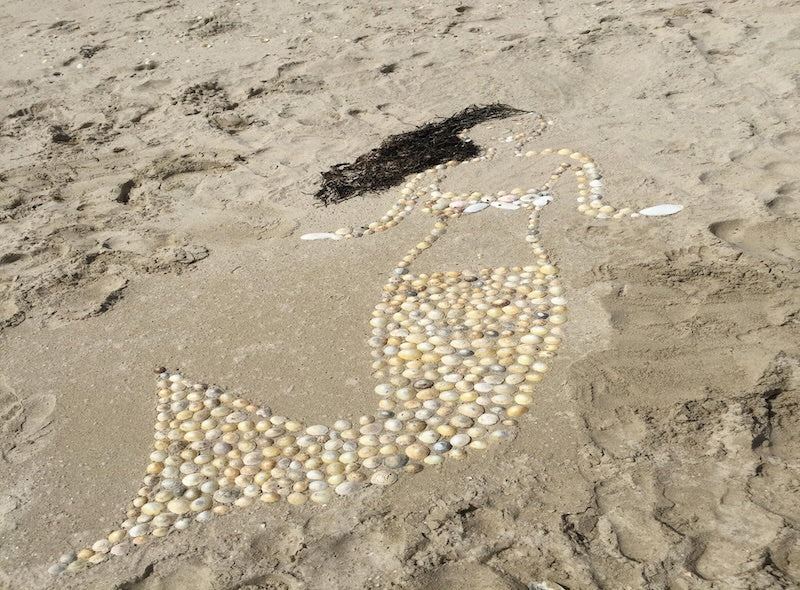
An Interview with Kula for Karma
By Michelle Lunger
We had the chance to interview one of the organizations we spotlighted: Kula for Karma. We loved learning about their organization and the work they are doing for the mental health community. We were inspired and felt connected to them because of their determination, story, and connection to mental health. We decided to share some of the questions from our interview for you to get to know Kula too!
What is Kula for Karma?
“Kula for Karma provides mindfulness-based mental healthcare for our post-pandemic world. As innovative leaders in the mental and behavioral health arenas, Kula for Karma helps people develop skills for cultivating inner resources and resilience in times of stress or crisis, and in response to trauma.
We do so with scientifically-backed methods of healing through restorative yoga, guided meditation, breathing techniques and mindfulness practices that teach people to calm their nervous systems, balance emotional dysregulation, cultivate clarity and focus, and address individual, familial, communal and ancestral trauma.
We teach people how to recognize trauma living in their bodies, and how it affects their behavior, decision making, self-image and perspective. Then we give them the skills and tools to create new neural pathways, establish new habits and patterns, and even change the expression of their DNA.”
What does Kula for Karma mean?
“The name Kula For Karma comes from Sanskrit, the ancient language of yoga.
Kula: Community.
Karma: Service to Others.”
Why did you start Kula for Karma?
“For sixteen years, Geri, the founder, and her colleague Penni have been "sisters" on a mission to bring mindfulness for mental health to people who cannot easily access it or afford it. They grew a grassroots idea and effort into a critical national mental health movement that is perfectly positioned to speak to this very moment in history: the post-pandemic mental health crisis. While struggling with debilitating social anxiety, Geri Topfer was introduced to the healing power of mindfulness and yoga. Linking breath to movement allowed her to begin to address her childhood trauma and find a daily practice that moved her toward peace. Geri received a spiritual awakening; navigating her own vulnerability and the importance of resilience, she found her purpose. Geri was inspired to help others find their own path to healing. Her contagious motivating energy and her heart for serving people were the seeds from which Kula was born.”
For more about our origin story, go to https://www.kulaforkarma.org/who-we-are
What are each of your connections to mental health?
“Jenni: Even as a small child, I have always been an introspective person who was aware of how the people, environments and circumstances surrounding me affected me. An empath who feels everything deeply – and can easily feel and experience the emotional vibrations of others and be thrown off or hurt by them – I started to wonder how I could help myself feel more in control of what I took in, how it made me feel, and what it often caused me believe about myself. In 2014 I was diagnosed with Complex PTSD from childhood abuse and from rape and sexual assault as a teen and young adult. I was devoted to holistic behavioral therapy, and it helped, but it only went so far. I read Bessel van der Kolk’s The Body Keeps the Score and Peter Levine’s seminal work and learned that my trauma lived in my body, and not as much so in my mind. It validated my personal experience of how anxiety, depression, panic attacks and other physical symptoms manifested in my health and wellbeing. Though I had memories of my traumatic experiences (and also some that I couldn’t fully recall) the memories were acting themselves out in my body, my self perception, my perception of the word, and my resulting behavior and self defeating decisions. I had gotten sick with autoimmune issues, but talking it out didn’t address those. Only yoga, breathing and meditation worked to start to move traumatic memories and energies out of my body to make room for new energetic patterns and new neural pathways and start my long healing process. I am also a Reiki Master and a large part of my healing has come from a combination of mindfulness and energy work, on both myself and others. As a Reiki energy channel, I have learned so much from my clients about how their trauma similarly lived within their bodies and chakras, and got the honor of watching how their bodies healed themselves through yoga, mindfulness and energy work.”
What does mental health mean to you and Kula for Karma?
“Good mental health is the next human right we are fighting for, and making that a reality is our mission.
"Mental health includes our emotional, psychological, and social well-being. It affects how we think, feel, and act. It also helps determine how we handle stress, relate to others, and make choices."
- MentalHealth.gov
In other words, our mental health affects everything in our lives, including our physical health and the expression of our genes.Serving the mental health of people with trauma, addiction, and a wide range of mental health conditions since 2007, Kula for Karma’s solutions are more important than ever. Our programs are built on science-backed data that shows mindfulness practices are one of the most effective ways to address and improve mental health.”
What is Kula’s mission?
“Kula's mission is to make mental health a human right by providing equitable, accessible, and affordable mindfulness-based mental healthcare to underserved and marginalized communities.
Kula for Karma is a non-profit whose mission is to relieve the suffering and promote wellness among societies most vulnerable populations - populations that have been challenged by violence, abuse, illness, and addiction among other traumas. Kula for Karma provides critical adjunct therapies, including yoga, meditation and stress reduction training, to communities in need.”
What are some of the benefits of practicing mindfulness and yoga for mental health and trauma?
“Studies show that mindfulness-based stress reduction is as effective as an antidepressant drug for treating anxiety disorders. Beyond that, trauma-informed gentle yoga leads to over 30% reduction in treating symptoms for PTSD. Breathing more fully and consciously is one of the best ways to quiet the mind and release tension and stress from the body. Scientific reports provide evidence that breath work can have beneficial effects on stress and mental health.
Yoga has been shown to reduce cortisol levels, increase levels of GABA, and increase heart rate variability. In turn, this can boost your mood by lowering levels of stress hormones, increasing the production of feel-good chemicals known as endorphins, and bringing oxygenated blood to your brain. It can also affect your mood by elevating levels of a brain chemical called gamma-aminobutyric acid (GABA), which is associated with a better mood and decreased anxiety. Preliminary research also suggests that controlled breathing can help to reduce anxiety, depression and stress, and that it can help to improve overall well-being.”
For more stats from scientific studies, go to https://www.kulaforkarma.org/what-we-do
What are the communities that your organization supports and where do you serve?
“At-risk youth, people in addiction recovery treatment, LGBTQIA communities, marginalized communities with collective trauma, survivors of domestic violence, survivors of sexual abuse and assault, housing and food insecure people, incarcerated and formerly incarcerated people, people who have experienced violence such as gun violence, first responders and front-line community workers, and doulas and birthing people. All ages are impacted by trauma, abuse, neglect or stress.
We serve in prisons and jails, juvenile detention centers, addiction and recovery treatment facilities, Boys and Girls clubs, schools, hospitals, crisis centers, safe houses, community centers, and spaces where the people who keep our communities healthy and safe serve. We are constantly adding new programs in new spaces.
In 2020, during the pandemic, Kula also began serving first responders and front-line workers like doctors, nurses, medical professionals, hospital staff, police, firefighters, and EMTs. Mental health for front-line workers and first responders remains in high demand.”
How does your organization give back to communities in need?
“As a small but mighty nonprofit, we provide mindfulness-based mental health care services to communities in need at a significantly reduced cost that makes it affordable and sustainable. We work hard to raise the rest of the funds needed to cover our expenses. We invest in teachers who are experts in trauma, addiction and mental health, and provide deeply specialized services. We go into space where many would be intimidated, like prisons and juvenile justice facilities, with the strength of our nonjudgmental compassion.”
What have you, as an organization, learned since starting Kula?
“Everyone has mental health challenges. EVERYONE. Even those who seem like they have it all. One of the best antidotes to anxiety and depression, aside from mindfulness practices, is to regularly get outside ourselves and our obsessions with our own stories and narratives, and focus on other people and their stories and challenges. Helping others lifts us out of thinking we are alone or the only ones struggling, and makes us feel joyful and needed when we see how much we can impact the lives of those around us.”
What is the need for an organization such as Kula?
“We love that more people are talking about mental health, using mindfulness practices to manage it, and eschewing the stigma. Many of us take for granted that we can easily get ourselves to an effective and professional yoga or mindfulness class, without worrying about how we will be looked at or treated, how we will afford it, or how we will get transportation to it. There are so many underserved and marginalized communities that don’t have this kind of access to mental health care or yoga, meditation and breathwork classes. Our goal at Kula for Karma is to make sure everyone has access to mental healthcare, no matter who they are, the situation they are in, or where they find themselves.”
How does Kula for Karma differ from other organizations or nonprofits?
“We meet people where they are: We go into schools, hospitals, crisis centers, addiction and recovery treatment, prisons, juvenile justice facilities, and spaces where people who have experienced domestic and sexual violence and other types of trauma go for help, to give them access to the mental health care that they desperately need to improve their situations and lives.”
What is the most exciting project you are working on?
“Developing a new program at a charter school in Brooklyn working with a community of underserved kids who experience violence, poverty, housing and food insecurity, and many other individual, communal, and familial traumas. We will have a team of neuropsychologists and professional researchers from LIU Brooklyn to help us measure the impact of our programs on this very important group of middle school students.”
What are some of the programs that you offer?
“Kula for Karma offers mindfulness-based mental health programs fully customized for communities of people in specific spaces where there is a need and curates the classes with accessible gentle and restorative yoga postures, guided meditations, and breathing exercises. Dharma talks set a meaningful theme or topic for each class that allows the participants to explore how to support their own mental health for the long term.”
What challenges have you faced as an organization and how have you overcome them?
“Kula for Karma was providing mindfulness based mental health care before the conversations around mental health were so prominently discussed. When Kula for Karma first started, Founder Geri Topfer would talk to everyone she could connect with about the benefits of mindfulness based mental health care and the benefits. She personally went into communities that desperately needed these services to help in a hands-on way.”
Where are you located and how can someone interested get involved?
“We’re based in New Jersey and New York/NYC but our programming is nationwide and we also provide some virtual services. Please feel free to reach out to learn more or partner with us!”
Email: Jenni@kulaforkarma.org
How do donations support your organization?
“Donations make our programs possible. There is a big gap between what we charge for programs and what it costs to develop, run them, monitor and measure them, and provide them at the sites. Kula staff is a tiny but mighty team of all women, 2 full time and 3 part time, who all have our own histories with the very same issues we address with the populations we serve. We don’t have an office in order to keep overhead low, and we all bring our scrappiness to the table to operate the organization and raise funds to keep going. We have trained hundreds of teachers in yoga and mindfulness for trauma, addiction and mental health to teach our programs, and they also go out into the world and use that knowledge and experience to impact their own communities in many ways.”
What events have you hosted and are in the works?
“Most recently we hosted our Kula Concert: Music for Mental Health at Carroll Place in the West village. It was a fun and packed night of bands playing well-known covers of popular music everyone can sing along to, gourmet pizzas and open bar, talking openly about mental health, and raising funds and awareness for Kula for Karma. We’re looking forward to planning it again to celebrate World Mental Health Day on October 10, 2024. We also will be offering mental health education and mindfulness practice events to attend live and virtually in May, 2024 to celebrate Mental Health Awareness Month. Stay tuned @kulaforkarma on social and KulaforKarma.org, where you can sign up for our monthly newsletter, The Mental Health Movement.”
What are some fundamental mental health resources or tools that you recommend to our community?
Visit our resources and inspiration at https://www.kulaforkarma.org/resources
“Loving Kindness Meditation, Grounding Techniques for Anxiety + Trauma, Establishing a Gratitude Practice, How to Practice a Body Scan, How to Write Positive Affirmations, Take 5 Breathing Technique, Tips to Improve your Sleep Hygiene.”
What advice can you give to our community?
“Stay curious about yourself, your mental health, and the different experiences of others. Open minded curiosity leads to confident self knowledge and wisdom, no matter your circumstances. Never stop learning and growing, no matter how inconvenient or difficult it may be. The moment you believe you know or have conquered everything is the moment you stop truly living and transcending. Prioritize protecting and cultivating your wellbeing in whatever ways work uniquely for you; you don’t have to be - and are not meant to be - like anyone else. Seek purpose not in accumulating accomplishments, but in the journey of learning to unconditionally love yourself and others. That’s what actually changes the world.”
We hope you enjoyed learning about Kula as much as we did! To learn more about Kula for Karma check out their website or reach out to us and we would be happy to answer any questions.











